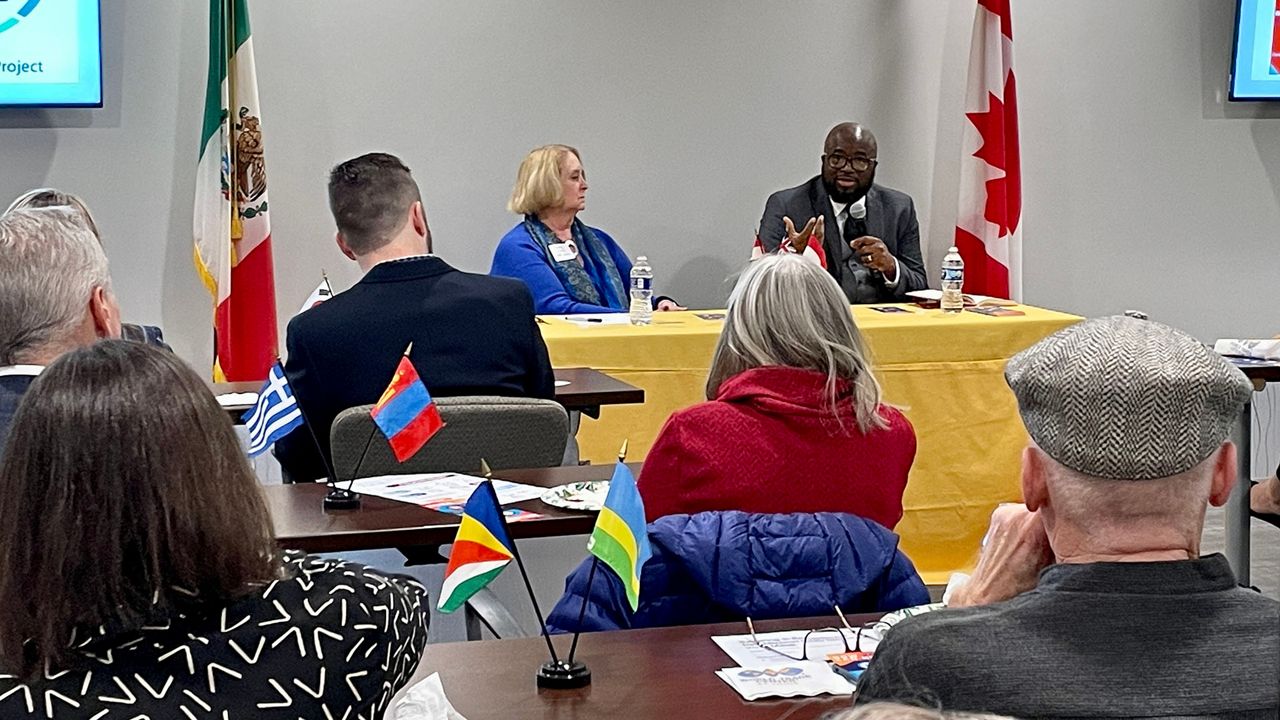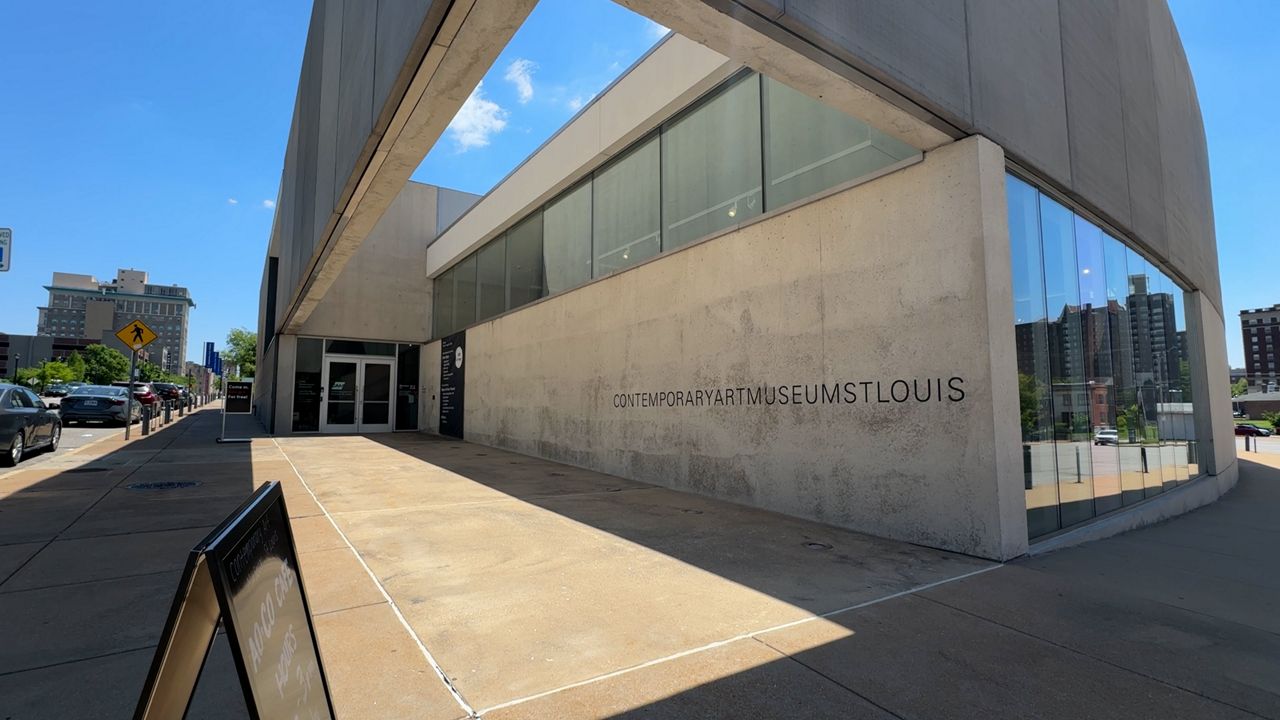ST. LOUIS — St. Louis has been a welcoming place for hundreds of Afghan and Ukrainian refugees over the past year and a half. The International Institute of St. Louis (IISTL) has been integral in their success and after helping more than 1,000 people resettle here in 2022, the organization is expecting to help even more in 2023.
Dozens of community members gathered at the World Trade Center St. Louis Tuesday evening where IISTL President and CEO Arrey Obenson provided an update on the resettlement of Afghan and Ukrainian refugees in St. Louis.
In 2022, IISTL helped 1,010 people resettle and provide resources for 200 Afghans, 293 Ukrainians and nearly 300 other refugees, among others.
This year, IISTL is prepared to welcome 1,150 new arrivals to St. Louis, including 500 refugees, 350 Afghans and 400 Ukrainians.
From 2017 to 2020, Obenson said IISTL welcomed 470 refugees compared to September through November 2021 when the organization received more than 500 Afghan arrivals.
“The work that we did in four years, we did in four months,” he said.
Before the “avalanche” of Afghan refugees coming to the area, the funding for International Institutes across the country were cut and programs were reduced due to lack of refugees, according to Obenson.
“The Institute had seen a significant reduction in its capacity because of the previous four years and we had to ramp up as a community, not just the International Institute because we couldn’t have done it alone. It was thanks to this community that stood up.”
In the wake of the 725 Afghan refugees that resettled in St. Louis, sometimes IISTL was given hours’ notice of families arriving and had to make arrangements quickly for refugees and provide what they needed.
To help resettle refugees, IISTL formed alliances with other community organizations and partnered with hotels to provide enough temporary housing as the organization worked to find permanent homes, according to Obenson.
Obenson added they had to think outside the box when it came to finding permanent housing and had to work with landlords to accept refugees as they did not meet application requirements.
He added that IISTL was lucky to find a donor who worked to develop a housing fund to provide a guarantee to landlords that rent would be paid. With the housing fund and money from the federal government, the organization can provide three months of rent for refugees as they look for jobs.
Obenson noted that re-homing refugees has been successful and there have only been two instances where the organization has had to move families because of an issue.
“We’ve had almost 100% of job placements. Almost every family that has arrived is engaged in the community,” he said.
With Afghan refugees, Obenson noted a cultural barrier when it comes to women in the workforce. Due to family sizes, Afghan women stay home to take care of the children and culturally, women stay home, he said.
“Staying in this society, we kind of have to push the women a little bit to come out and also join the workforce. But it’s all part of a process and over a period of time, and we’re working with other organizations that are developing programs for these women to be engaged,” Obenson said.
To keep refugees connected during the pandemic, IISTL was able to provide families with iPads and iPhones with hotspots.
IISTL is creating an Afghan Chamber of Commerce and an Afghan community center. The community center is expected to open next month.
More than 50 cases of refugees from other parts of the country have moved to St. Louis, Obenson said.
“What we’re learning is that many people know about California, Texas, and Virginia, and not many people know about St. Louis,” he said.
“And so, when they go to California and Texas, and to find out how challenging things are there, and to hear what we as a community are doing in St. Louis, it becomes an attractive place for them to come.”
He added that what IISTL and other organizations are doing to help refugees will encourage more to come to the area.
When Ukrainian refugees started coming to the U.S., the Uniting for Ukraine program was already in place to provide them with temporary housing. Due to the program, IISTL did not experience as big of a housing burden when Ukrainian refugees came to St. Louis, Obenson said.
Organizations such as the St. Mary's Assumption Ukrainian Greek Catholic Church has played a great role in welcoming families by raising money, awareness and support for refugees.
In the beginning, Obenson said Ukrainian refugees could access only some programs offered by IISTL, but now due to changes, the organization has seen an increase in those using and benefiting from its federal programs.
Nearly 300 Ukrainians are participating in IISTL programs, including English-language programs, food stamps, incentive work programs and more.
Obenson said no one knows when the Ukrainian-Russian war will end, but refugees hope to return to their country one day.
“We’re here to support and welcome them to make them feel at home in this community,” Obsenson said.
For more information about IISTL, click here.









